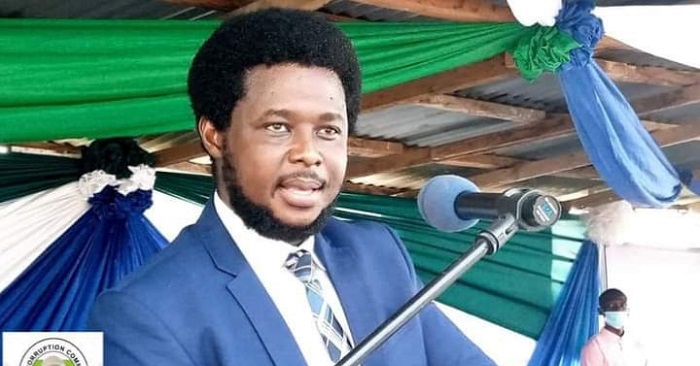The Anti-Corruption Commissioner, Francis Ben Kelfala, has described Sierra Leone healthcare delivery system as “the second most corrupt” system in the country, second only to the Sierra Leone police.
Awoko reports that He said this at the signing ceremony of a Memorandum of Understanding (MoU) between the two institutions to help visibility, framework and accountability, at the ministry’s conference hall in Freetown last Thursday 2nd September 2021.
Kelfala says the ministry’s large interface with the public especially after the introduction of the Free Health Care in Sierra Leone, which made the sector prominent thereby attracting a lot of resources. He said as always, “where there is big money, there is a tendency for big corruption.”
The head of the country’s Anti-graft said, “several years ago, it was the judiciary that was the second most corrupt in the country. For several years back-to-back, it is now the health care delivery system that has occupied that position, in the ranking of corruption in Sierra Leone, second to the Sierra Leone Police.” He noted, “we know that it is a wide and huge sector, and because of the large interface with members of the public and the healthcare sector, the same that happened for the police, it is not necessarily the reality that it is the most corrupt but it is perceived to be so.”
In ensuring such an important sector does not have such a perception hanging out, he said they are signing an MoU to create a framework for information sharing, to support themselves in their respective responsibility in their duties, and to include everyone in the two institutions to change from the things that are holding the nation back.
Kelfala says the supply chain management of drugs has been the most corrupt with only 30 percent accountability of every drug that come into the country with almost 70 percent needed to be accounted for. He says there is every need for the two institutions to work together in ensuring the supply chain system is accountable by way of ensuring those working along the chain take responsibility so ultimate beneficiaries get more of the drugs.
“An unhealthy citizenry would not even enjoy any economic progress or development. The citizens have to be healthy to enjoy the benefits of the country in which they live, therefore, the healthcare delivery system has to be well organised, well-coordinated, has a degree of accountability that is respectable, and to succeed in this ultimate goal is to ensure citizens benefit from whatever system that is available to take care of their health.”
They at the ACC he said will work with all in the ministry to avoid the abnormality pointing out that the most important decision to address corruption has to do with individual’s commitments.
The Minister of Health and Sanitation Dr. Austin Demby, said the signing is at a very important time for him as a minister after dedicating 42-years of his life in the health sector. He stressed, during his years in office, he has met with dedicated and committed staff in the ministry that have dedicated their lives in fighting disease prevention, focused and mean well for the country.
As a ministry he said “Within the system, there are individuals or network of groups that don’t see this vision of the hardworking ministry officials. I think what we want to do is to identify those individuals and be able to make sure that they are not in the system that will lead to fraud, waste, and abuse, that is what we want to eliminate in the system”
“The impact in people’s life is so incredible. Small fraud is costing people’s lives nationwide, waste of government resources that should have gone in the right place to secure a life and wellbeing of somebody is so vital, and that, that abuse that someone thinks is trivia, has devasting consequence in the delivery of healthcare.”
The Minister said as they get into the MoU, he wants his sector members to understand the consequences of the reaction, and work internally to create a system to prevent it. Pointing he said, the Commissioner has no joy in persecuting anybody nor in dragging people to court. He called for redoubling of efforts to make sure they don’t allow others to drag them down by creating systems, and network that will assure the quality of service is premium in what they do.
He advised, “For those who don’t want to listen, don’t want to cooperate, we will make sure that the ACC comes after them, not by accusing anybody but by investigating. Investigating and those found wanting will be prosecuted.”




 Post a comment
Post a comment









Comment(s)
Disclaimer: Comments expressed here do not reflect the opinions of Sierraloaded or any employee thereof.
Be the first to comment